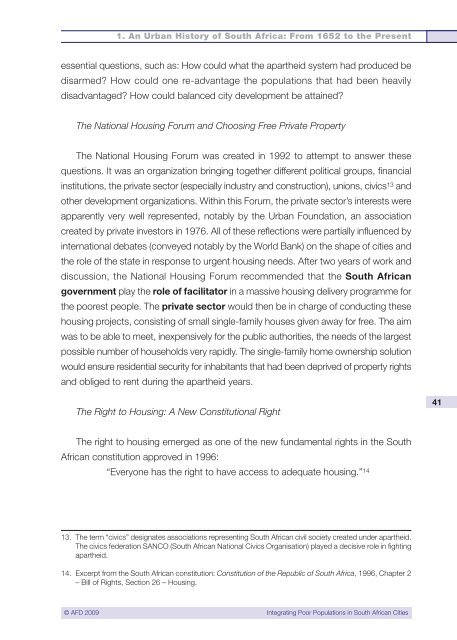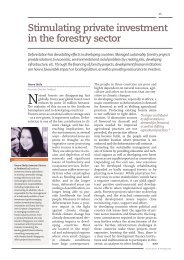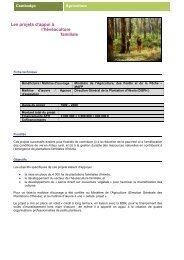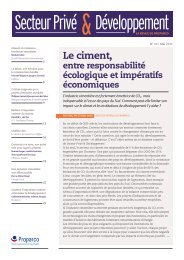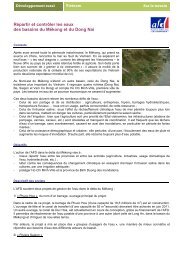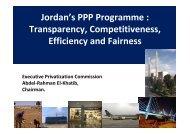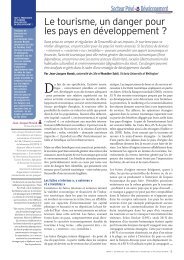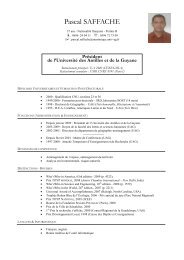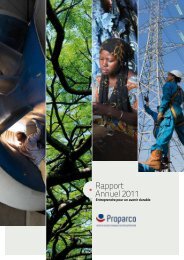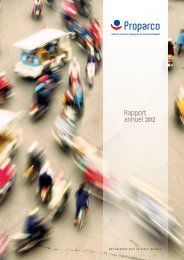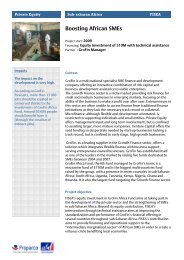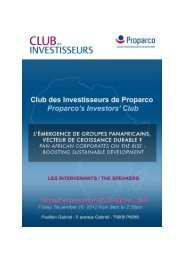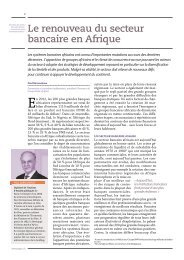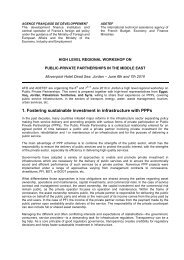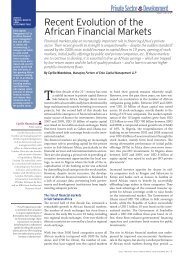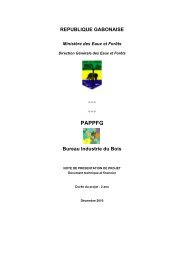Integrating Poor Populations in South African Cities - Agence ...
Integrating Poor Populations in South African Cities - Agence ...
Integrating Poor Populations in South African Cities - Agence ...
You also want an ePaper? Increase the reach of your titles
YUMPU automatically turns print PDFs into web optimized ePapers that Google loves.
1. An Urban History of <strong>South</strong> Africa: From 1652 to the Present<br />
essential questions, such as: How could what the apartheid system had produced be<br />
disarmed? How could one re-advantage the populations that had been heavily<br />
disadvantaged? How could balanced city development be atta<strong>in</strong>ed?<br />
The National Hous<strong>in</strong>g Forum and Choos<strong>in</strong>g Free Private Property<br />
The National Hous<strong>in</strong>g Forum was created <strong>in</strong> 1992 to attempt to answer these<br />
questions. It was an organization br<strong>in</strong>g<strong>in</strong>g together different political groups, f<strong>in</strong>ancial<br />
<strong>in</strong>stitutions, the private sector (especially <strong>in</strong>dustry and construction), unions, civics 13 and<br />
other development organizations. With<strong>in</strong> this Forum, the private sector’s <strong>in</strong>terests were<br />
apparently very well represented, notably by the Urban Foundation, an association<br />
created by private <strong>in</strong>vestors <strong>in</strong> 1976. All of these reflections were partially <strong>in</strong>fluenced by<br />
<strong>in</strong>ternational debates (conveyed notably by the World Bank) on the shape of cities and<br />
the role of the state <strong>in</strong> response to urgent hous<strong>in</strong>g needs. After two years of work and<br />
discussion, the National Hous<strong>in</strong>g Forum recommended that the <strong>South</strong> <strong>African</strong><br />
government play the role of facilitator <strong>in</strong> a massive hous<strong>in</strong>g delivery programme for<br />
the poorest people. The private sector would then be <strong>in</strong> charge of conduct<strong>in</strong>g these<br />
hous<strong>in</strong>g projects, consist<strong>in</strong>g of small s<strong>in</strong>gle-family houses given away for free. The aim<br />
was to be able to meet, <strong>in</strong>expensively for the public authorities, the needs of the largest<br />
possible number of households very rapidly. The s<strong>in</strong>gle-family home ownership solution<br />
would ensure residential security for <strong>in</strong>habitants that had been deprived of property rights<br />
and obliged to rent dur<strong>in</strong>g the apartheid years.<br />
The Right to Hous<strong>in</strong>g: A New Constitutional Right<br />
41<br />
The right to hous<strong>in</strong>g emerged as one of the new fundamental rights <strong>in</strong> the <strong>South</strong><br />
<strong>African</strong> constitution approved <strong>in</strong> 1996:<br />
“Everyone has the right to have access to adequate hous<strong>in</strong>g.” 14<br />
13. The term “civics” designates associations represent<strong>in</strong>g <strong>South</strong> <strong>African</strong> civil society created under apartheid.<br />
The civics federation SANCO (<strong>South</strong> <strong>African</strong> National Civics Organisation) played a decisive role <strong>in</strong> fight<strong>in</strong>g<br />
apartheid.<br />
14. Excerpt from the <strong>South</strong> <strong>African</strong> constitution: Constitution of the Republic of <strong>South</strong> Africa, 1996, Chapter 2<br />
– Bill of Rights, Section 26 – Hous<strong>in</strong>g.<br />
© AFD 2009 <strong>Integrat<strong>in</strong>g</strong> <strong>Poor</strong> <strong>Populations</strong> <strong>in</strong> <strong>South</strong> <strong>African</strong> <strong>Cities</strong>


